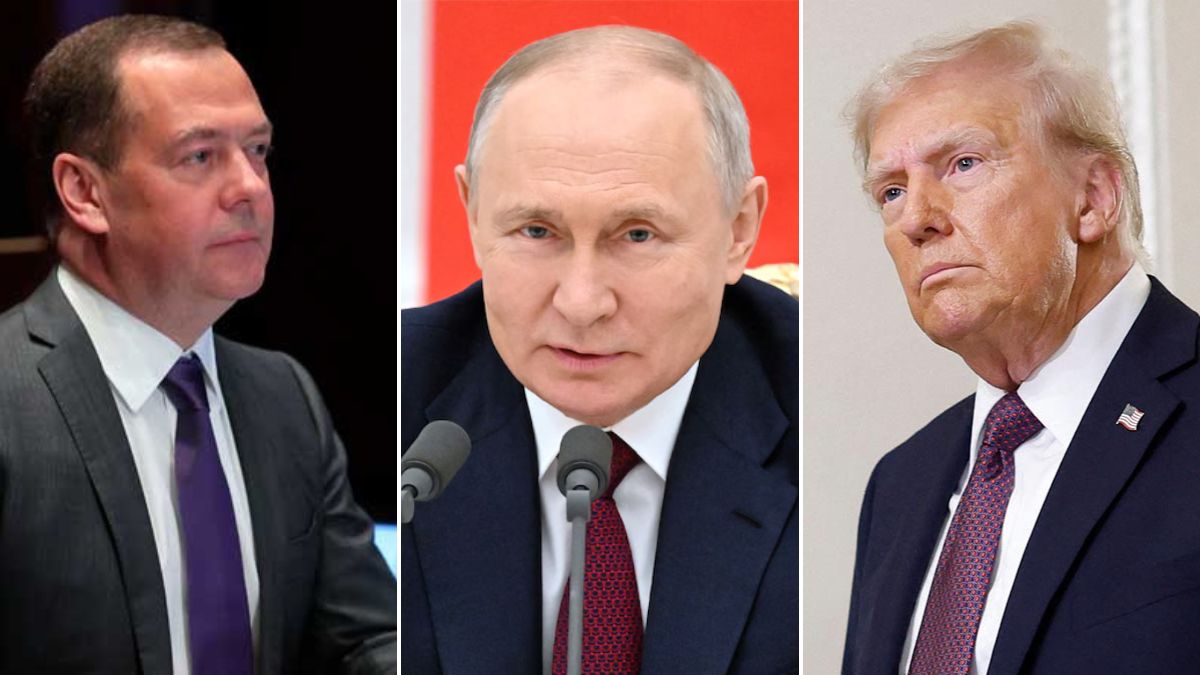Donald Trump moves US nuclear submarines near Russia in response to Dmitry Medvedev's 'Dead Hand' remark

US President Donald Trump on Friday ordered that two nuclear submarines be positioned in "appropriate regions" near Russia, in response to provocative statements from the deputy chairman of Moscow's Security Council, Dmitry Medvedev.
"Words are very important, and can often lead to unintended consequences, I hope this will not be one of those instances," Trump said in a Truth Social post, directly mentioning the former Russian president.
Medvedev had earlier ridiculed the US president's 'dead economies' remark in a Telegram statement, in which he also warned Washington of Russia's 'Dead Hand'.
"As for the talk about the 'dead economies' of India and Russia, and 'entering dangerous territory'—maybe he (Trump) should recall his favourite 'Walking Dead' movies, and also remember how dangerous the so-called 'Dead Hand,' which doesn't even exist, could be," Medvedev had said.
The term 'Dead Hand' is a Cold War-era reference to a Soviet nuclear deterrent system known as the Perimeter, a doomsday system reportedly designed to ensure a guaranteed retaliatory strike in the event of an attack on the USSR, even if the Soviet regime were incapacitated.
The war of words between the two began after Trump reduced the 50-day tariff deadline—before which the Russia-Ukraine war was to be stopped—to 10-12 days, claiming to be exasperated with Moscow aggression against Kyiv.
Medvedev, who had called the earlier deadline a "theatrical ultimatum", responded to this change as well, warning the US of escalations between Moscow and Washington.
"Each new ultimatum is a threat and a step towards war. Not between Russia and Ukraine, but with his own country. Don't go down the Sleepy Joe road!" he had said, in an X post.
Later on, Trump even called India and Russia 'dead economies' in a follow-up Truth Social post to his announcement of 25 per cent tariffs on New Delhi.
He had stated that one of the reasons for the 25 per cent tariff—in addition to an unspecified secondary penalty—was because India was one of the largest purchasers of Russian energy.
India, however, has adopted a measured approach to the tariff announcement, as well as Trump's remarks, making a case for its own economy, and stating that Russia-India relations were "steady and time-tested". MEA Spokesperson Randhir Jaiswal, who made the statement, was quick to add that India and the US also share a comprehensive global strategic partnership anchored in shared interests, democratic values, and robust people-to-people ties.
World